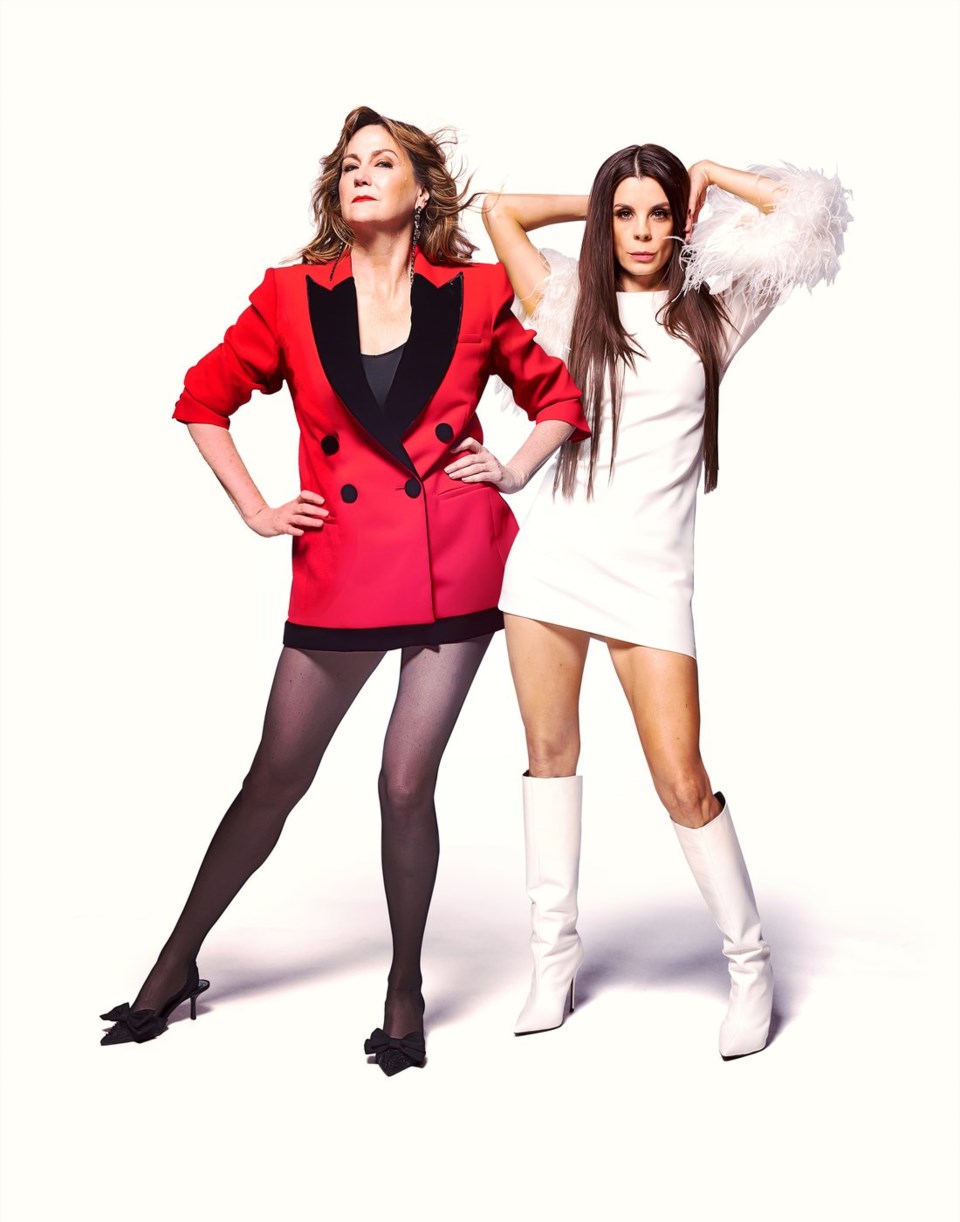TORONTO — Jennifer Whalen wasn’t quite prepared for the intensity of menopause.
“You hear about hot flashes, but then you actually experience it and you're like, oh, my body is on fire,” said the 54-year-old actor, who started experiencing symptoms during the pandemic.
“It starts in your chest and you actually feel like you might spontaneously combust. It should be called inferno flashes.”
But what surprised her the most was how scarce information was about the bodily transition, which occurs when the ovaries stop producing eggs and estrogen and progesterone levels decline.
“I was just shocked by how little I knew about it,” she shared during an interview at CBC headquarters.
“Everything I learned about menopause was so relentlessly negative and depressing and there was such a lack of research, lack of medical training on it.”
Still, Whalen couldn’t help but see the comedic gold in her situation. So she called up her friend and fellow “Baroness von Sketch Show” alum Meredith MacNeill with an idea for “a menopause office comedy.”
“I just thought, what if we could make a really joyful comedy about something that people perceived to be negative?”
They co-created “Small Achievable Goals,” premiering Tuesday on CBC, which follows two polar-opposite women thrown together by work and their shared hormonal journey. Whalen stars as Julie, a seasoned 50-year-old podcast producer whose career ambitions get derailed by those "inferno flashes" and menopause-fuelled bursts of rage. MacNeill plays Kris, a free-spirited 40-something beauty influencer who lands a podcast deal — only to be blindsided by an alarmingly heavy period on her first day.
“We fought hard to put period blood in the show,” said MacNeill, who, like her character, has been experiencing perimenopause in real life.
Though the blood was fake, MacNeill recalled feeling “internal shame” when filming scenes where her pad and clothes were meant to look soaked.
While “Small Achievable Goals” finds humour in menopause, it also confronts the stigma surrounding it in the workplace.
“A lot of women are let go because of menopause,” said MacNeill, who’s 47.
“There's studies done that show women start to actually leave their jobs as well because there’s so much shame and they don't want to talk about it. They can't deal with it. And there's not really a lot of help out there for them.”
A University of British Columbia study conducted last year surveyed more than 1,500 women in the province and found that one-third reported menopause symptoms impacting their jobs.
MacNeill felt ill-equipped for menopause, having grown up in a family where it was never openly discussed.
“My mom didn't talk about it. I think that this stage of life as a woman is not celebrated. You're told to experience it with great shame,” she said.
MacNeill said the lack of information on menopause leaves many women struggling to identify its symptoms. When she began experiencing crippling anxiety during perimenopause, discovering the cause brought her a sense of relief.
"With anxiety, you tend to attach it to self-worth or your job or a relationship. The gift of menopause is you can say, 'I can't attach it to anything.' It's just a feeling that you're having in your body."
Whalen believes menopause is seldom discussed openly because there are “social and financial penalties” for saying you’re experiencing it, whether in the dating world or the workplace.
“It’s a marker that you've gotten to a certain age and we live in a very ageist society. There's so much to lose and not a lot to gain (by talking about it),” she said.
“I also think there's a larger thing where it really feels like your value as a human ends when you are no longer fertile.”
But the pair hope their comedy can highlight the positive aspects of this stage in life, from the end of menstrual cycles to greater self-confidence.
In one scene, Julie taps into her menopausal fury like it’s a superpower, delivering a raw, unfiltered blast of honesty to her boss.
“When you reach middle age, you get to a point where you just don't give a crap anymore, and in the best possible way,” said Whalen.
“You're like, ‘I don't line up to go to clubs anymore.’ There are certain things where you're just like, ‘Nope, nope, nope.’ And you have a great sense of yourself, which allows you to be able to say what you think.”
“There's so much joy and power and fun that comes with getting older as a woman,” added MacNeill.
“The only reason it feels hard is because the male gaze says that it is. But being out from under the gaze is so freeing.”
This report by The Canadian Press was first published Feb. 25, 2025.
Alex Nino Gheciu, The Canadian Press



